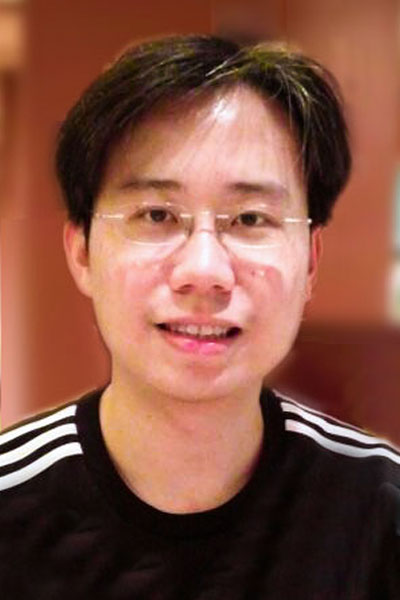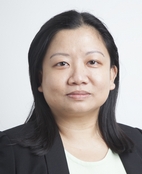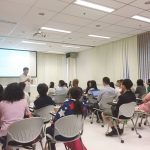Abstract
A three-year study was launched in a Hong Kong secondary school to investigate the effects of the medium of instruction (MOI), specifically English and Chinese, on the learning of certificate-level physics. A total of 199 Secondary Four (S4 or tenth-grade) students, divided into three major ability groups, participated in a teaching intervention designed to determine the effects of MOI on their learning achievement and motivation. The results of conceptual assessments and physics examinations revealed Chinese to be a superior MOI in enabling low-ability students to attain a higher level of achievement, whereas English was more suitable for their high-achieving counterparts. However, little conclusive evidence regarding the role of MOI for the medium-ability groups was found. A questionnaire-based survey indicated that students were more motivated to learn physics through Chinese as the MOI (CMI) rather than English (EMI), although significant limitations to its use were identified for the topic of “Heat”. Deficiencies in the vocabulary needed for abstract scientific concepts in Chinese may account for these limitations (for instance, Chinese uses the same word, “re” (熱), for both “heat” and “hot”). Finally, follow-up interviews at the end of the study revealed a sharp contrast between the learning prospects of EMI and CMI students.
Speaker
Dr. Dennis Fung
Assistant Professor, Programme Coordinator of BEd&BSc, Division of Mathematics and Science Education, The University of Hong Kong
Dr. Valerie Yip
Assistant Professor, Division of Mathematics and Science Education, The University of Hong Kong
About the Speaker
Dr. Dennis FUNG specializes in physics education and collaborative group work. He has published some articles related to medium of instruction and science education. He is a co-investigator of the project funded by UGC-ESRC titled “Bilateral (Hong Kong) the effects of social pedagogic contexts in the teaching of primary mathematics: facilitating learning in two cultures”, in collaboration with the University of Cambridge. He is a recipient of the Doris Zimmern HKU-Cambridge Hughes Hall Fellowship in 2012 and 2015 and was a visiting scholar in the Faculty of Education, the University of Cambridge.
Dr. Valerie YIP is a science and liberal studies educator specializing in using English as an instructional medium to teach the two disciplines. She has worked for projects funded by GRF and EDB on classroom practices in L1/L2, teacher professional development in assessment, self-directed learning, as well as teaching nature of science and scientific inquiry.
Date
10 May 2016 (Tuesday), 12:45 - 02:00pm
Location
Room 205, 2nd Floor, Runme Shaw Building , HKU
Chair
Professor Amy Tsui
Presentation Slide
Presentation Slide 1 :
- ‘Curses in TESOL’: Postcolonial Desires for Colonial English
- “Enhancing Data-Driven Learning in Disciplinary L2 English Contexts: Introducing CorpusMate”
- “Neither Bilingual nor Education”: critiques of bilingual education in state school education and responses to them
- A Two-Tiered Investigation Into the Dual Goal in EMI Education: Assessment and Instructional Practices
- Acculturation and digital trans-literacies in identity construction: An interdisciplinary perspective (Nov 6th, 2025)
- Appropriation of Resources by Bilingual Students for Self-regulated Learning of Science
- Auckland U – HKU Joint Webinar (28 November, 2024)
- Automated Content Feedback and Young English Learners’ Behaviours, Performances and Response
- Book Launch Seminar: Language Across the Curriculum & CLIL in English as an Additional Language (EAL) Contexts
- Critically Engaged Literacy Workshop as Decolonial and Anti-Racist Pedagogy (April 16th, 2025)
- Crosslinguistic influence in foreign and second language learners
- Developing Language Educators’ Understanding of Assessment Reform Discourse and Practices: School-University Collaborative Action Research as Praxis
- Digital literacy pedagogy:
Key issues in the age of Gen-AI
- Digital Multimodal Composing for Specific Purposes: The Case of Sustainability Discourse
- EMI Symposium 2023: Fostering Collaboration
- Exploring Self-Regulated Use of Artificial Intelligence Tools in Language Learning
- Generative AI: Implications and Applications for Education
- Global Englishes-informed Teacher Education: Present Cases and Future Directions
- HKU-NCL Joint Webinar (Nov 27th, 2025)
- HKU-Newcastle U Joint Webinar: Critical Perspectives on Language Policy and Practice (May 2nd, 2025)
- HKU-NIE Joint Webinar: Designing Learning and Assessment with Multimodality in CLIL Classrooms
- Hong Kong SAR Government’s ‘Biliteracy and Trilingualism’ Policy: Sizing Up and Meeting the Challenge
- Hong Kong Students’ Self-regulated English Writing for Academic Studies
- HUMANISING TECHNOLOGY in Language Learning & Teaching
- Interactional Reflexivity in the Age of AI: Rethinking L2 Writing Teachers’ Assessment Literacy Development (Oct 9th, 2025)
- Language ideologies in text-based art of Xu Bing: Implications for language policy and planning
- Language Learning in 3D Virtual Worlds
- Learning about and using academic vocabulary: Critical issues for pedagogy (Feb 18, 2025)
- Motivational and Empowering Feedback in the Writing Classroom
- Multilingualism and its Ramifications
- Multilingualism and Mobility: The Semiotic Production of Centres and Peripheries in Airport Spaces
- Multilingualism and the Brain
- Narrative Skills in Mandarin- English Dual Language Immersion Learners
- Narratives of Cross-Cultural Understanding among South Asian Diasporic Students in Hong Kong
- NCL-HKU Joint Webinar (June 5th, 2025)
- Newcastle U-HKU Joint Webinar on Cultural Artifact Creation (14 November, 2024)
- Oklahoma U-HKU Joint Webinar (05 December, 2024)
- Optimising Classroom Learning: Speaking in and about Mathematics Classrooms
- People who come from state education are different”: How language use maintains social exclusion in Medical Education
- Policy vs Practice: Homework in Hong Kong EFL Classrooms
- Review of recent research on AI-powered technology in second language teaching, learning and testing (Feb 10, 2025)
- Revival and Threat: Language ideologies, policy, and nationalism in Kazakhstan and Mongolia
- Secondary school students’ source use in inquiry project-based learning (PjBL): Working towards avoiding plagiarism and engaging with sources
- Sociocultural awareness of international ELT policies: The case of a US-funded program in Morocco
- Studies of Public Policy Process and Implications for Research on Education Policy
- The Challenges of Teaching Non-Chinese Speaking Children to Learn Chinese at Kindergarten Level
- The Contributions of Growth Rates in Phonological and Spatial Abilities to Chinese Reading and Mathematical Competencies: A Longitudinal Study of Hong Kong Kindergarteners
- The Digital Literacies Forum 2023
- The Historical and Linguistic Background of South and Southeast Asian Multi-ethnic Communities in Hong Kong
- The Influence of Extramural Access to Host Culture Social Media on Ethnic Minority Students’ Motivation for Language Learning
- Top desk rejection reasons and how to avoid it
- Translanguaging in Everyday Textual Performances: Implications for Literacy and Pedagogy
- Understanding Language Learning Motivation in Hong Kong
- University of Melbourne – University of Hong Kong Joint Symposium (19 November, 2024)
- Using Reading to Learn Pedagogy to Support Non-Chinese Speaking Students Learning Chinese in Hong Kong
- Videos in language classrooms: A social semiotic perspective
- What can we learn from the Hong Kong Archive of Language Learning Project?
- New technologies in literacy research:
“Measuring” embodiment through
galvanic skin response
- Publishing in top-tier applied
linguistic journals:
Perspectives of an editor�reviewer-author







